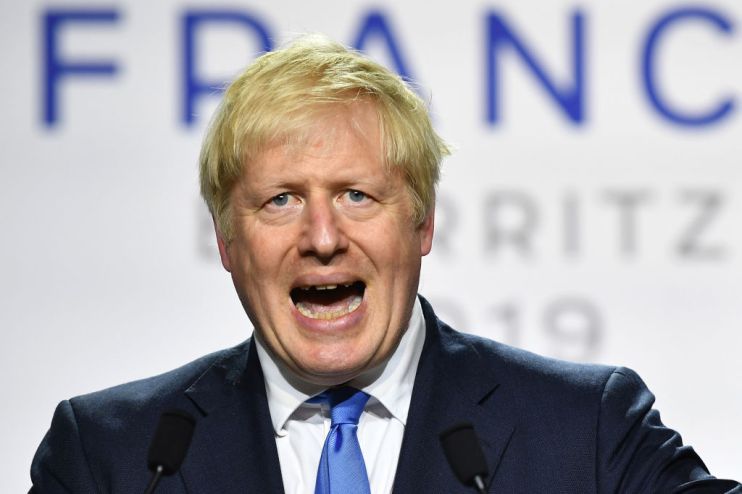Chance of Brexit deal edges up after Boris Johnson’s G7 meetings

The likelihood that Boris Johnson will be able to secure a new Brexit deal, and avoid crashing out of the EU in October, have edged up following on from a positive series of meetings around the G7 summit.
The Prime Minister spent the week leading up to the Biarritz bash jetting off to see key European counterparts, starting with dinner in Berlin with German Chancellor Angela Merkel, followed by lunch in Paris with French President Emmanuel Macron.
During the G7 he also held a bilateral with European Council President Donald Tusk, who had been damning of Johnson’s open letter calling for a rethink on the Irish border backstop, by removing it from the Withdrawal Agreement and tackling it during the transition period as part of talks on the future relationship.
Read more: Boris Johnson hits back at Tusk’s ‘Mr No Deal’ claims
Although an EU official told journalists there was nothing “new or substantive” from the 25-minute chat, it seems there is a shift in mood towards the new Prime Minister and his willingness to forge a constructive dialogue, in order to strike a deal.
Political consultancy Eurasia Group has increased the chances of getting a deal on Brexit from 10 per cent before the G7 to 15 per cent, noting that “if one does come together, senior EU officials think it will happen at or just before the October European Council”.
Mujtaba Rahman, managing director of Europe for the Eurasia Group, tweeted: “The idea that nothing has changed – “standard talking points” – is simply wrong, as is silly reporting on [Boris Johnson’s] big victory on the continent. Neither approach is discerning; both miss very subtle, underlying shifts.”
Read more: Merkel: ‘I can see possibilities for a Brexit solution’
Quoting positive noises from the EU side, Rahman added: “It seems there’s even some *sympathy* with Johnson’s desire to diverge – “to do things differently” & it seems the PM did manage to impress his German & French counterparts last week.”
Rahman also pointed to a shift in the language being used regarding the Withdrawal Agreement – which had been previously deemed “closed” – towards a more conciliatory acceptance that practical options would be considered. Last week Macron said he would consider “amendments” to the agreement, although stressed it must happen “without totally reshuffling the Withdrawal Agreement”.
Ahead of a Brussels trip by Johnson’s chief negotiator David Frost, one European diplomat told The Times the PM had “personally moved the dial”.
“He has come across as serious, well briefed and, against our first impressions, he wants a deal. He has personally moved the dial,” the source said. “We are willing to look at British proposals but they must be workable.”
Main image: Getty